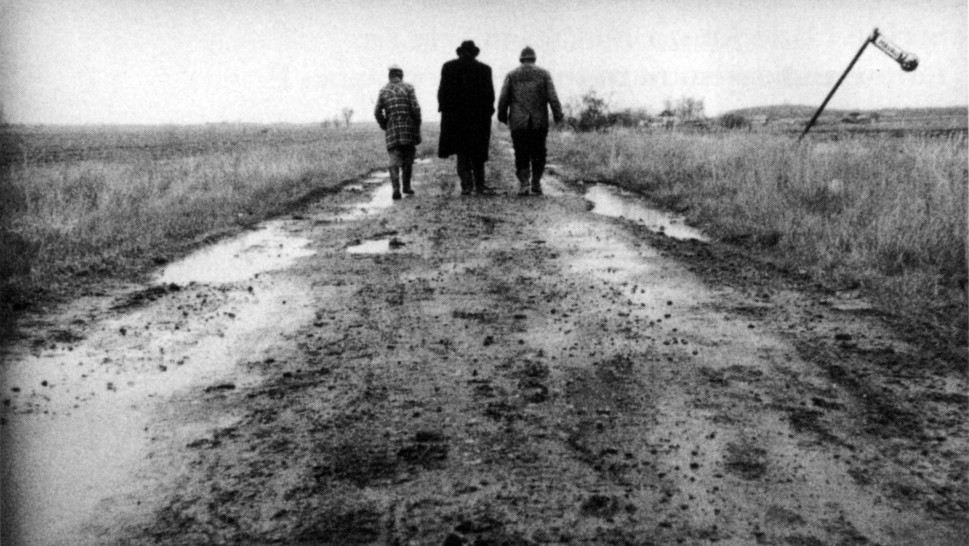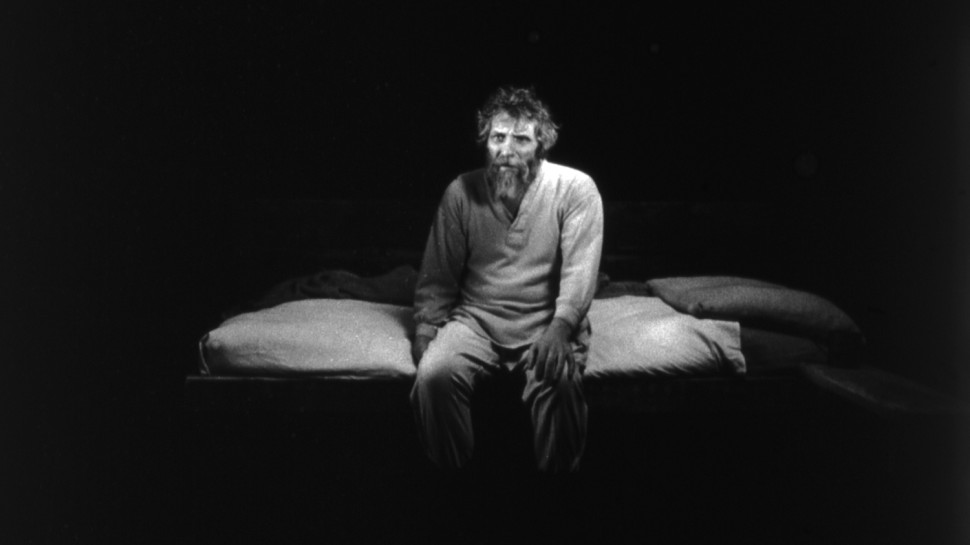


The Melancholy Worlds of Béla Tarr
Béla Tarr (b. 1955) is the ultimate auteurist’s auteur, an artist who ascended from a cult director little known outside of his native Hungary to one of the most revered figures in world cinema today, all the while stoking an enflamed cinephilia among his growing legion of passionate followers. His 1988 film Damnation offered the first full expression of the unique style defined by Tarr across the four extraordinary features he directed since then, all sharing brooding black and white cinematography, elaborately choreographed extended tracking shots, a hypnotic rhythm and enigmatic stories imbued with a sense of impending doom. In each film Tarr pushes these unmistakable qualities to a seemingly insurmountable extreme, giving way to the mesmerizing monumentality of his audacious seven-and-a-half-hour epic Sátántangó and the stark minimalism of his brilliant summary work The Turin Horse, Tarr’s latest and declared last film.
Tarr launched his career with a series of blistering and intense documentary-style films that quickly moved from the urgent engagement of contemporary social problems in Family Nest to the increasingly theatrical, abstract and claustrophobic study of avarice and depravation unfolded in Almanac of Fall – a film whose daring use of unconventional composition and unnatural dialogue points directly towards Tarr’s later work. The roots of Tarr’s cinema in the documentary leanings of the so-called Budapest School nevertheless remain legible in the richly mannered late work whose strange artifice and darkly fantastical (at times almost science-fiction) dimensions depend upon an exacting fidelity to space and time. In this way Tarr uses a remarkably mobile camera to exhaustively track the complete arc of actions, from the spinning drunkards in a dingy bar in Werkmeister Harmonies to the daily labor of the farmers in The Turin Horse. Like the great films of Tarkovsky and Ophuls, Tarr’s iconic work favors an assertively mobile camera that dynamically expands cinematic space and time while defining a foreboding yet graceful omnipotence, the roving camera seeming to embody the unknown forces that control the perpetually wintery and seemingly about to be extinguished worlds inhabited by Tarr’s films.
Despite their sense of dark menace, Tarr’s films are incomparably engaging and remarkably exhilarating to behold, their careful use of repetition seeming always about to crest and climax, creating a hypnotic suspension perfectly expressed in the serial soundtracks brilliantly designed by composer Mihály Vig. Fascinating for their ambiguity, Tarr’s films are legible as rich allegories for the collapse of Western civilization and the revenge of ravaged Nature. At the same time, the recurrent figures within them of men and women fighting with grim determination against an endless storm also offer poignant expressions of the paradoxical stubbornness, the strange insistence, of human desire and ambition.
The Harvard Film Archive is thrilled to offer this rare showcase of Béla Tarr’s feature films, including the area premiere of The Turin Horse. – Haden Guest


















